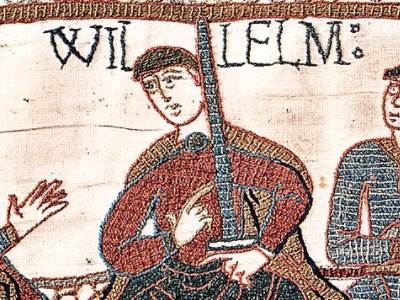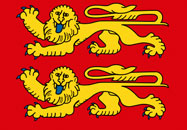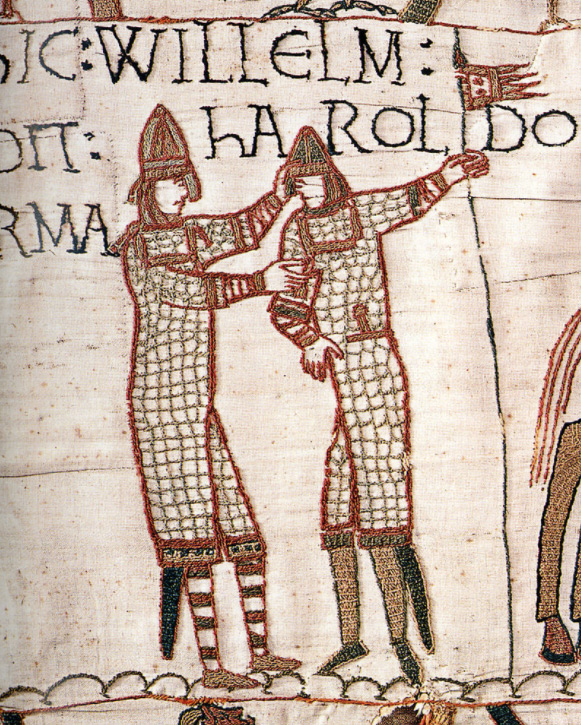William the Conqueror (1028-1087)
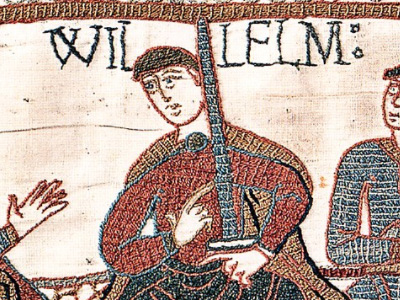
Legacy
The immediate consequence of William's death was a war between his sons Robert and William over control of England and Normandy. Even after the younger William's death in 1100 and the succession of his youngest brother Henry as king, Normandy and England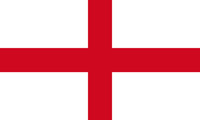 The Kingdom of England was a sovereign state on the island of Great Britain from about 927, when it emerged from various Anglo-Saxon kingdoms, until 1 May 1707, when it united with Scotland to form the Kingdom of Great Britain. The Viking invasions of the 9th century upset the balance of power between the English kingdoms, and native Anglo-Saxon life in general. The English lands were unified in the 10th century in a reconquest completed by King Æthelstan in 927. remained contested between the brothers until Robert's capture by Henry at the Battle of Tinchebray in 1106. The difficulties over the succession led to a loss of authority in Normandy, with the aristocracy regaining much of the power they had lost to the elder William. His sons also lost much of their control over Maine, which revolted in 1089 and managed to remain mostly free of Norman influence thereafter.
The Kingdom of England was a sovereign state on the island of Great Britain from about 927, when it emerged from various Anglo-Saxon kingdoms, until 1 May 1707, when it united with Scotland to form the Kingdom of Great Britain. The Viking invasions of the 9th century upset the balance of power between the English kingdoms, and native Anglo-Saxon life in general. The English lands were unified in the 10th century in a reconquest completed by King Æthelstan in 927. remained contested between the brothers until Robert's capture by Henry at the Battle of Tinchebray in 1106. The difficulties over the succession led to a loss of authority in Normandy, with the aristocracy regaining much of the power they had lost to the elder William. His sons also lost much of their control over Maine, which revolted in 1089 and managed to remain mostly free of Norman influence thereafter.
The impact on England of William's conquest was profound; changes in the Church, aristocracy, culture, and language of the country have persisted into modern times. The Conquest brought the kingdom into closer contact with France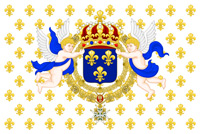 The Kingdom of France is the historiographical name or umbrella term given to various political entities of France in the medieval and early modern period. It was one of the most powerful states in Europe since the High Middle Ages. It was also an early colonial power, with possessions around the world. Colonial conflicts with Great Britain led to the loss of much of its North American holdings by 1763. The Kingdom of France adopted a written constitution in 1791, but the Kingdom was abolished a year later and replaced with the First French Republic. and forged ties between France and England that lasted throughout the Middle Ages. Another consequence of William's invasion was the sundering of the formerly close ties between England and Scandinavia. William's government blended elements of the English and Norman systems into a new one that laid the foundations of the later medieval English kingdom. How abrupt and far-reaching were the changes is still a matter of debate among historians, with some such as Richard Southern claiming that the Conquest was the single most radical change in European history between the Fall of Rome and the 20th century. Others, such as H. G. Richardson and G. O. Sayles, see the changes brought about by the Conquest as much less radical than Southern suggests. The historian Eleanor Searle describes William's invasion as "a plan that no ruler but a Scandinavian would have considered".
The Kingdom of France is the historiographical name or umbrella term given to various political entities of France in the medieval and early modern period. It was one of the most powerful states in Europe since the High Middle Ages. It was also an early colonial power, with possessions around the world. Colonial conflicts with Great Britain led to the loss of much of its North American holdings by 1763. The Kingdom of France adopted a written constitution in 1791, but the Kingdom was abolished a year later and replaced with the First French Republic. and forged ties between France and England that lasted throughout the Middle Ages. Another consequence of William's invasion was the sundering of the formerly close ties between England and Scandinavia. William's government blended elements of the English and Norman systems into a new one that laid the foundations of the later medieval English kingdom. How abrupt and far-reaching were the changes is still a matter of debate among historians, with some such as Richard Southern claiming that the Conquest was the single most radical change in European history between the Fall of Rome and the 20th century. Others, such as H. G. Richardson and G. O. Sayles, see the changes brought about by the Conquest as much less radical than Southern suggests. The historian Eleanor Searle describes William's invasion as "a plan that no ruler but a Scandinavian would have considered".
William's reign has caused historical controversy since before his death. William of Poitiers wrote glowingly of William's reign and its benefits, but the obituary notice for William in the Anglo-Saxon Chronicle condemns William in harsh terms. In the years since the Conquest, politicians and other leaders have used William and the events of his reign to illustrate political events throughout English history. During the reign of Queen Elizabeth I of England, Archbishop Matthew Parker saw the Conquest as having corrupted a purer English Church, which Parker attempted to restore. During the 17th and 18th centuries some historians and lawyers saw William's reign as imposing a "Norman yoke" on the native Anglo-Saxons, an argument that continued during the 19th century with further elaborations along nationalistic lines. These various controversies have led to William being seen by some historians either as one of the creators of England's greatness or as inflicting one of the greatest defeats in English history. Others have viewed William as an enemy of the English constitution, or alternatively as its creator.
HISTORY
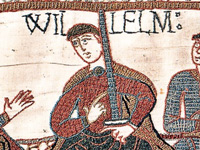
RESOURCES
This article uses material from the Wikipedia article "William the Conqueror (1028-1087)", which is released under the Creative Commons Attribution-Share-Alike License 3.0.
© Stories Preschool. All Rights Reserved.
